Adapted from an article by Rabbi Daniel Fine
I remember recently trying to fill out an application form for a British Passport for my b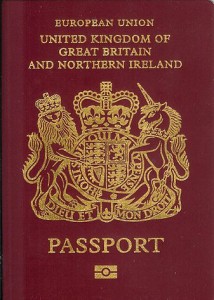 aby daughter. As I was reading through the form filling in all of the relevant information and providing the right supporting documentation (proving 4 generations of British descent!), I found myself wishing that I would’ve paid better attention to Mrs Davis, my English teacher back in high-school. Trying to interpret the meaning of some of the questions was far more complicated than Herman Melville’s Moby Dick!
aby daughter. As I was reading through the form filling in all of the relevant information and providing the right supporting documentation (proving 4 generations of British descent!), I found myself wishing that I would’ve paid better attention to Mrs Davis, my English teacher back in high-school. Trying to interpret the meaning of some of the questions was far more complicated than Herman Melville’s Moby Dick!
When reading the Megilla also, we can’t help but feel like we’re missing something. So we try to think back to Hebrew School (ouch!) and remember that Mrs Kleinkaufmanbergerstein says that the moral of the Megilla is “They tried to kill us; we won; let’s have a party!” and we ponder to ourselves “Hmmmm…I wonder why you need 166 verses of the Megilla to say that, I could’ve done it in 1!”
The problem is that we’re missing the key to unlocking the depth of the Megilla. The key? Yes, the key. And what is this key? The key is in the commentaries. Just like we need Mrs Davis to fill in the gaps in our understanding Moby Dick, when examining the story of the Megilla with all of the relevant commentaries and Torah sources, a much broader picture starts to unravel.
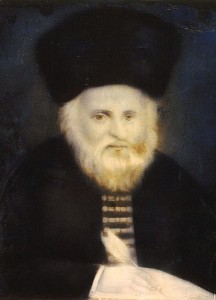 This work is based on the writings of the Vilna Gaon, an exceptional 18th Century black-belt Torah scholar from Lithuania who dedicated his life to understanding the depths of the Torah and then plugging it back into the simple reading of the words. He ties in all of the less-known parts of the Purim narrative to reveal the full story and looking at the words with pinpoint accuracy, one will find that everything that he writes is mentioned (at least indirectly) right there in the verses.
This work is based on the writings of the Vilna Gaon, an exceptional 18th Century black-belt Torah scholar from Lithuania who dedicated his life to understanding the depths of the Torah and then plugging it back into the simple reading of the words. He ties in all of the less-known parts of the Purim narrative to reveal the full story and looking at the words with pinpoint accuracy, one will find that everything that he writes is mentioned (at least indirectly) right there in the verses.
If Megillas Esther (the Scroll of Esther also translated as ‘revealing the hidden’) is all about revealing the hidden miracles that God employs in running the world, then the Vilna Gaon certainly opens our eyes to seeing those miracles in the Megilla.
The Story Begins – The New Capital
Once upon a festival, there was a King called Ahasuerus. Originally a ‘horse-breeder,’ Ahasuerus had become the front-runner in usurping the throne of the Babylonian Empire (previously formed by Nebuchadnezzar), using various underhand means. Not quite good enough to qualify for the equestrian event at the infamous Babylon Olympics, he organised to be head of the Olympic committee, via usurping the throne. Unsurprisingly, as King of this ‘Grand National’ Empire of 127 countries over which he had no hereditary right to rule, Ahasuerus was looking for ways to legitimise his rule, to win over the people to allay his fears of a rebellion. He realised that there’s nothing quite like a royal wedding to peak the patriotic emotions of a nation. Thus, he married a lady called Vashti, who, apart from being particularly beautiful (on the outside at least), was the Babylonian King Nebuchadnezzar’s granddaughter. And, given that she was his ‘security’ to the throne, there was no chance he’d ever part from her. At least that’s before God had other ideas.
Anyway, having the destructively common combination of paranoia and greed, Ahasuerus had another ‘interesting’ idea; a royal throne. But not any old throne. He wanted Nebuchadnezzar’s own throne – the one he had plundered from Israel; 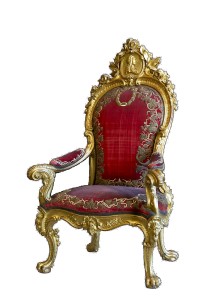 the throne built by King Solomon. The problem was that this was no ordinary throne. Made with deep spiritual secrets, this throne had lions engraved onto it and birds hovering above it and should an unfitting King sit on it, the chair would ‘spit out’ its occupant. Ahasuerus knew that he would never be able to sit on this throne, so his craving soon turned to carving. He ordered an exact replica throne to be made for him – one carved to the finest detail to be a perfect match for the original (no beer-fridge, drinks-holder or inbuilt back-massage then). The problem? The only suitable workmen he could find for the ambitious project lived in a city called Shushan (situated in modern-day Iran), and when they finally completed the project (after three years’ work), the grand throne was too heavy to move.
the throne built by King Solomon. The problem was that this was no ordinary throne. Made with deep spiritual secrets, this throne had lions engraved onto it and birds hovering above it and should an unfitting King sit on it, the chair would ‘spit out’ its occupant. Ahasuerus knew that he would never be able to sit on this throne, so his craving soon turned to carving. He ordered an exact replica throne to be made for him – one carved to the finest detail to be a perfect match for the original (no beer-fridge, drinks-holder or inbuilt back-massage then). The problem? The only suitable workmen he could find for the ambitious project lived in a city called Shushan (situated in modern-day Iran), and when they finally completed the project (after three years’ work), the grand throne was too heavy to move.
Thus, even more surprising than America winning the World Cup (the European sport called football that is actually played with feet), the absurd became the impossible and Ahasuerus had his entire capital (with all its government ministers) move from Babylonia to a city called Shushan. Thus (1:2) ‘it was in those days when the King took residence on his throne in Shushan the (new) capital’ – this was the first time he had sat on his new throne, and Shushan was now officially declared the capital.
But why did God pick Shushan? ‘For a Jew lived in Shushan by the name of Mordechai’ (2:5) – it would later be this very same Mordechai (who now lived conveniently near the new palace) who would be able to overhear a plot against Ahasuerus’ life. But still, the King would never have Vashti removed. Not in a million years. Unless…
The Party
The Gemora tells us that Nebuchadnezzar was a very stingy person (not so hard to imagine). So much so that after he plundered all the riches of the dozens of countries he conquered, he had them stored in iron ships which he then deliberately sunk purely so no-one would enjoy these riches after he died. There is stingy and there is stingy! Anyway, when Koresh took over the reigns (it was he who allowed the Jews to begin rebuilding the Temple) he found these sunken ships and the treasures therein – actually, this was his reward for granting the Temple permit. All in all, the treasures filled 1080 storehouses.
By the time Ahasuerus came to the throne and took possession of these storehouses, he ‘decided’ to dabble in a phenomenally unprecedented display of show-boating. In order to impress his subjects with his vast wealth (thus augmenting their subservience to him) the idea ‘was put into Ahasuerus’ head’ to order a giant festival, during which various ministers from the various countries would be shown round these 1080 storehouses. But, due to the sheer volume of treasures, there was only enough time for the ministers to see six storehouses per day. So, with six storehouses to get through each day and 1080 storehouses to survey in total, Ahasuerus took out his iPhone, made a quick calculation and declared a feast for 180 days.
But that was not it. At the end of these 180 days Ahasuerus decided to play the ultimate card to win over the local populous in Shushan. After all, it was of utmost importance to gain favour in the eyes of the people of Shushan. For, as residents of the capital, they would be the ‘first line of defence’ in case of rebellion. So, with the plan being to get the people to love him (not just feel subservient to him – after all, he was aiming to guarantee their loyalty should they be called on to defend him), Ahasuerus went all out.
 He decorated the banquet hall and welcomed every resident of Shushan into the King’s palace. Ahasuerus wanted to show that he was a lovable character, a real ‘man of the people,’ so he engaged in an illusory feat of democracy. In order to make every person feel ‘he belonged there’ not only were personal invitations printed no doubt, but every attendee was able to order the cuisine of his choice – as well as their favourite wine. But (in true democratic spirit) they could all do what they wanted at the party. If you wanted to drink then you drank, but if you didn’t want to drink then that was also fine – ‘there was no forced drinking’ (1:8). An autocratic tyrant pretending to be democratic – that’s how things tends to work in the Middle East. However, it was at the culmination of these 180 days’ feasting, in the presence of all the important ministers and his ‘beloved’ residents of Shushan, that Ahasuerus (who would never part with Vashti, remember) was about to be visited by the real Puller of the strings.
He decorated the banquet hall and welcomed every resident of Shushan into the King’s palace. Ahasuerus wanted to show that he was a lovable character, a real ‘man of the people,’ so he engaged in an illusory feat of democracy. In order to make every person feel ‘he belonged there’ not only were personal invitations printed no doubt, but every attendee was able to order the cuisine of his choice – as well as their favourite wine. But (in true democratic spirit) they could all do what they wanted at the party. If you wanted to drink then you drank, but if you didn’t want to drink then that was also fine – ‘there was no forced drinking’ (1:8). An autocratic tyrant pretending to be democratic – that’s how things tends to work in the Middle East. However, it was at the culmination of these 180 days’ feasting, in the presence of all the important ministers and his ‘beloved’ residents of Shushan, that Ahasuerus (who would never part with Vashti, remember) was about to be visited by the real Puller of the strings.
Now Vashti (remember her?) was getting tired of her husband’s constant partying. Coming from royalty herself, she knew that it was most unbecoming of a real King to behave in such a way to publicly fress and gulp down wine for 180 days. So, at this ‘final supper’, the culmination of the half-year-long festivities, ‘Vashti decided to make a feast for the ladies’ (1:9). And, in selecting a venue to host such a feast, Vashti made a bold move and decided on a room called the Beis Ha-Malchus, the only place in the palace where the King could go alone (save from the little-boys-room, of course). Irked by her husband’s public fressing, Vashti provocatively chose this location. Not only that, but this room ‘happened’ to be situated adjacent to the main banquet hall where the men were indulging in their alcohol-inspired gluttony.
Now women have not changed much over the past two thousand years; they babbled-on in Babylon as much as they do today. Men haven’t changed much over the past two thousand years either; hearing women’s voices, the conversation immediately took on a different tone. Thus, Mr. ‘man of the people’ Ahasuerus, smiling at the head of the table like Mickey Mouse at Disney World, soon saw his smile wiped from his face as an altercation broke out in the banquet. Things had started not going according to plan (well, Ahasuerus’ plan anyway).
The men (with severe amounts of blood in their alcohol stream by now) were vocally arguing about whether Persian women or Median women are prettier. As the battle raged, Ahasuerus (who had tempered his drinking lest the ‘man of the people’ reveal his true, autocratic tendencies) decided that he had to play arbitrator here, lest this deeply intellectual debate derail his party. So, tempting fate somewhat, Ahasuerus called for a third party referee; he sent for his wife to come wearing (not much more than) the royal crown, declaring that ‘neither Persians nor Medians are the most beautiful – I married a Babylonian and she’s the prettiest of the lot.’ Putting their personal bickering aside, a hushed silence descended on the hall, as the people waited for Vashti to make an appearance. This was the moment for Ahasuerus. It was the climax of his feasting, so to speak, with Vashti’s appearance supposed to prove his re-jigged identity as ‘man of the people.’
Unfortunate for Ahasuerus, due to a combination of spots and anger (always a dangerous combination for a lady), Vashti turned down her Mickey-Mouse of a husband, adamant that she would not be dancing at this ball. Ahasuerus, now all eyes on him, began to flare up in particularly unnatural anger – ‘the King was very angry, and his anger burnt inside of him’ (1:12). Now even an angry ‘mouse’ has some sense about him. He was not about to do away with his darling Minnie so easily – after all, it was in his interests to keep her around. So, ever the democrat and sensing a way out of this royal mess, Ahasuerus ordered that the case be referred to the courts there and then…
The Courtroom Drama
In those times, the Empire had two types of courts. One was legal and the other one crooked. The first was a normal panel of judges who would judge a case according to its rights and wrongs. The second type of court consisted of judges who would ‘know what to say’ – they would second-guess what the King wanted the verdict to be, and they would deliver accordingly.
Thus, Ahasuerus took his case to (1:13) ‘the wise people who know the times’ (i.e. they know when to say what). And in his referral, he stated that ‘Queen Vashti did not follow the King’s order’ (1:15) – sure they’d get the hint that he wanted her to still be his Queen. Yet there was a cog in the system, one by the name of Haman (Memuchan at this point). For just recently, Haman ‘happened’ to have been appointed to this ‘know what to say’ judicial panel. What’s more, Haman ‘happened’ to  have been having marital issues with his foreign wife as she was imposing her culture on his household and he didn’t like it (how would you feel if your wife banned bagels and lox, insisting on pita and hummus instead?!). So Haman, ever the devious one, planned to use this opportunity to take his vendetta against his wife to a new level. Speaking out of turn before everyone else, (the younger judge normally spoke last), Haman argued that this insult to the King could not possibly be ignored. The King must take strong measures against Vashti, lest any other wife (i.e. his) follow suit. Thus, he proposed that Vashti would look better with her head removed, and all men should be formally granted rule over their wives. Waxing lyrical, Haman’s premature speech swung the case, and the other judges voted in favour of ‘the new kid on the block’s suggestion.’
have been having marital issues with his foreign wife as she was imposing her culture on his household and he didn’t like it (how would you feel if your wife banned bagels and lox, insisting on pita and hummus instead?!). So Haman, ever the devious one, planned to use this opportunity to take his vendetta against his wife to a new level. Speaking out of turn before everyone else, (the younger judge normally spoke last), Haman argued that this insult to the King could not possibly be ignored. The King must take strong measures against Vashti, lest any other wife (i.e. his) follow suit. Thus, he proposed that Vashti would look better with her head removed, and all men should be formally granted rule over their wives. Waxing lyrical, Haman’s premature speech swung the case, and the other judges voted in favour of ‘the new kid on the block’s suggestion.’
However, Haman did not stop at that. Moving his head further towards the general direction of the King’s derrière (this is the city, after all), Haman proposed that the laws of the Empire be amended somewhat. Whereas previously only matters of direct national security could be decided by the King alone (without a court hearing), Haman argued that anything which affected the King (or his image) was, by nature a ‘matter of national security.’ Essentially, Haman argued for the institution of emergency powers whereby the King could rule on matters relating to himself without having to consult a court. These new ’emergency powers’ will be important later on. That was the end of that, and the court resumed its normal duties.
With Vashti gone, stage one was complete. God was the only One dancing at this party. In fact, matters were so much out of Ahasuerus’ hands that ‘he thought that this was good for him’ (1:21).
Now it’s one thing to rid himself of Vashti. But it’s a completely different kettle of (gefilte) fish to marry Esther. After all, which King looking to validate his regal authenticity would ever go for a Jewish girl – a member of an exiled, ‘downtrodden’ nation. No King in their right mind would do that. Certainly not Ahasuerus. Or perhaps…
Esther – A Most Complex Chemical Formula
After the impossible became the improbable, then the possible, likely, and then actually happened, Vashti’s death created a void in the King’s heart. Left stroking a photo of her on his pillow at night, as he changed his Facebook status to ‘single’, Ahasuerus slumped into melancholy. What’s more, his normal wise advisers, scared by the combination of a King in a bad mood together with these new emergency powers putting their lives on a knife-edge, stayed away from the King as much as possible. Thus, the only people who were left advising the King in his state of depression were ‘the young servants of the King’ (2:2), whose advice was about as immature as the mouths which they came from.
No doubt noticing that the King was pining for the lost beauty of Vashti, these young whipper-snappers advised the King that the most beautiful women should be gathered for the King to select a ‘Miss Babylon.’ Perhaps too stupid to realise that the King wanted royal lineage as well as looks, they advised that physical beauty be the only criteria. Arguably more shocking, however, was the King’s acceptance of their plan. Ignoring Haman’s implicit advice (1:19) to go for a woman of some impressive lineage, Ahasuerus went with the plan of these youngsters (it’s amazing what a combination of sadness, desperation and Divine string-pulling can do to someone). And sure enough, the painstaking process of gathering all the eligible maidens in 127 countries began. But still, it would never be Esther. After all, as soon as she heard about the ‘beauty contest’ idea, she (and every other woman of sense) went into hiding. Not only that, but Esther was not exactly a spring chicken (she was about as old as my Grandma is currently, and if I tell you that she was born during the Depression – which she still insists has nothing to do with her – that should give you a bit of an idea). So, being Jewish, an OAP and hiding, Esther’s prospects were not great. The Shushan branch of Bet365 didn’t even have odds on Esther, apparently even the odds of America winning the World Cup were more appealing. But natural odds are no deterrent for the Boss…
 Once Haggai (the officer put in charge of this royal fiasco) discovered Esther, he was convinced that she was the one. Thus, Haggai took good care of Esther and gave her all she requested. Anyway, Esther, who by now had found favour in all who met her due to a rare combination of beauty and refinement, religiously followed Mordechai’s command not to reveal her nationhood (which no doubt meant removing the Star of David charm from her Pandora bracelet), even though she did not know the reason why. This was yet another piece of the grand tapestry which would become significant later.
Once Haggai (the officer put in charge of this royal fiasco) discovered Esther, he was convinced that she was the one. Thus, Haggai took good care of Esther and gave her all she requested. Anyway, Esther, who by now had found favour in all who met her due to a rare combination of beauty and refinement, religiously followed Mordechai’s command not to reveal her nationhood (which no doubt meant removing the Star of David charm from her Pandora bracelet), even though she did not know the reason why. This was yet another piece of the grand tapestry which would become significant later.
Anyway, Esther was ‘called to the King in the tenth month’ (2:16), the month of Teves – another small miracle in that the coldness of the nights helped endear Esther to Ahasuerus. Yet still, her chances were improbable at best. Unlike the other girls who saw this as their opportunity for stardom (many were already planning biographies), Esther did not take in any special musical instruments to accompany the Cabernet Sauvignon when she was called to Ahasuerus. On the contrary, she was forced in against her will, and by this time she was visibly green from sickness. But what’s a little green-tinge to the Creator of the world?! A combination of Esther’s piety and Divinely inspired admiration in Ahasuerus’ eyes sealed the deal and the King had decided. Esther was to be the new Mrs. Ahasuerus. But, with no fat lady in sight, the miracles were not over yet. Instead of consulting with his advisers, Ahasuerus decided on the spot that Esther was his soul-mate and he had all the other girls sent packing. So the impossible had become the unlikely, then odds on and then actually happened. A ‘common girl’ had married into royalty (that just doesn’t happen nowadays, especially within the English Monarchy…ahem…Catherine who?!) We had our woman on the inside…
The long winter nights being as cold as London in the summer, Ahasuerus quickly took to staying up until the early hours of the morning drinking, after his mood had improved with the coronation of his new Queen (awww, young love). Now, this added consumption of wine took its toll on his two chief butlers, by the names of Bigsan and Teiresh (they do sound like wine brands, don’t they). After too many sleepless nights due to Ahasuerus constantly calling them in to serve him more wine, the butlers decided that ‘this city ain’t big enough for the both of us’ – it would be their lives or Ahasuerus’ life. Thus, they conspired against the King, planning to spike his drink with a most deadly poison (Manischewitz Kiddush wine maybe).
Mordechai however, was both onside and on-hand to overhear the plans of this terrible twosome, and he sent a message via Esther to warn the King. It was ‘fortunate’ that Ahasuerus had moved his capital to Shushan, otherwise Mordechai would never have been there to play such a major role. The King, who then had this treason independently and objectively confirmed (so not by the BBC then) organised for the plotters to be put in their own plot (in the ground), and recorded the event in his Book of Chronicles. Note the speed of events here – Esther’s quick ascendancy to the throne, followed almost immediately by the plotters and Mordechai’s inscription in the royal book. This point will be an important theme later too.
Haman’s Plan
Meanwhile, back at the palace, after Haman’s heroics as part of the judicial panel, the King had decided to promote Haman to chief adviser/minister. Haman, who was a barber by profession before his judicial big break, began to allow his new-found power go to his head. Thus, when Mordechai would not bow down to him, Haman became incensed saying to himself ‘all of this is not worth it if Mordechai the Jew will not bow down to me’. Yet, for some reason, Haman felt it too lowly to kill one person (and besides, the Gemora tells us that there was some past history between these two). Instead, Haman went for the jugular and he set about annihilating the whole nation.
 Haman approached the King, claiming that he had some important business to discuss with him and after laying into a certain nation who ‘did not keep the laws of the King,’ he requested that they all be put to the sword. Ahasuerus agreed to this request and handed over the fate of this unnamed nation for the small price of 10,000 kikar of silver (I think the UN are offering a cheaper price now). Haman sent out letters, signed with the King’s seal, which stated ‘everyone prepare yourselves to rise up against a certain nation on the 13th Adar.’
Haman approached the King, claiming that he had some important business to discuss with him and after laying into a certain nation who ‘did not keep the laws of the King,’ he requested that they all be put to the sword. Ahasuerus agreed to this request and handed over the fate of this unnamed nation for the small price of 10,000 kikar of silver (I think the UN are offering a cheaper price now). Haman sent out letters, signed with the King’s seal, which stated ‘everyone prepare yourselves to rise up against a certain nation on the 13th Adar.’
An important point to note is that in his request to the King, Haman did not mention the name of this abhorrently wayward nation. In fact, some of the Jews throughout the Empire were so clueless as to the objective of the plan that they themselves waited eagerly for the day they would be able to rid the country of this ‘despicable nation,’ whoever they were! Why did Haman not name and shame the nation immediately? The answer is that he was bent on keeping his ‘lucky date of 13th Adar’ which was the date of Moses’ death and he wanted to make sure the Jews would not rally and apply political pressure to prevent this decree from being executed (literally). So the identity of this ‘nation’ was a secret to everyone. It was to be announced by Haman a short time before 13th Adar. Even the people of Shushan were confused. they were awaiting the date but they didn’t know who would be the victims of this massacre.
There was one man who did know. His name was Mordechai. Probably told so by a prophetic dream (yes, another little miracle), Mordechai quickly went to work. He started a major Jewish Outreach movement (he got JPulse to open up a Shushan branch). The people of Shushan fasted and prayed. And, after relaying the danger to the oblivious Esther, he convinced her to do the unthinkable – to appear before the King uninvited. Now if you think gatecrashing a wedding is bad enough, try turning up to Ahasuerus’ throne without an invite. This was certain suicide. And what’s more, Esther was observing a multiple-day fast at the time; she hardly had that ‘glamorous look’ about her that would make the King want to spare her life. So, with the fasting Jews of Shushan waiting with baited (bad) breath and the royal guards ready to pounce, Esther entered the lion’s den…
‘Boys, I’m going in!’
![]() Now you might have noticed a Divine pattern in proceedings so far. God does not seem to be particularly bothered by odds (ask the sportsmen; if you can match-fix what do odds matter?!). Thus, it ‘happened’ to be that on the day that Esther strode into Ahasuerus, he had decided to move his throne to the next room along. He was now ‘sitting on his throne in the Beis Ha-Malchus opposite the entrance to his palace’ (5:1). This was a critical move, for it meant that as the guards readied themselves to pounce on their female prey, Ahasuerus had a view of Esther coming towards the entrance. What’s more, the fact that Esther looked so drained and that she had risked her life to see him only served to endear her in his eyes. He felt that he had to do something for his poor Queen who was obviously in distress. Now, as if hidden Divine intervention was not enough, at this point God’s intervention became a bit more ‘involved.’ The Gemora reveals that God ordered three angels into action at this point; one held Esther’s head up (she was too weak to support her own head properly), one endeared her to Ahasuerus, and the third pushed him to extend his golden sceptre to her – guaranteeing her survival. So, with these secret agents pulling off one of the most remarkable espionage missions to date, Esther had a trick of her own to pull out of her crown – the meal
Now you might have noticed a Divine pattern in proceedings so far. God does not seem to be particularly bothered by odds (ask the sportsmen; if you can match-fix what do odds matter?!). Thus, it ‘happened’ to be that on the day that Esther strode into Ahasuerus, he had decided to move his throne to the next room along. He was now ‘sitting on his throne in the Beis Ha-Malchus opposite the entrance to his palace’ (5:1). This was a critical move, for it meant that as the guards readied themselves to pounce on their female prey, Ahasuerus had a view of Esther coming towards the entrance. What’s more, the fact that Esther looked so drained and that she had risked her life to see him only served to endear her in his eyes. He felt that he had to do something for his poor Queen who was obviously in distress. Now, as if hidden Divine intervention was not enough, at this point God’s intervention became a bit more ‘involved.’ The Gemora reveals that God ordered three angels into action at this point; one held Esther’s head up (she was too weak to support her own head properly), one endeared her to Ahasuerus, and the third pushed him to extend his golden sceptre to her – guaranteeing her survival. So, with these secret agents pulling off one of the most remarkable espionage missions to date, Esther had a trick of her own to pull out of her crown – the meal
Knowing that the way to a man’s heart is through his stomach (which, presumably applies to people who don’t have hearts too), Esther invited Ahasuerus and Haman to a meal, both of whom immediately accepted her request. This was a grandmaster move, for it had two important outcomes. First, keeping the King guessing what her request was made for a hard night’s sleep at the palace (see below). And second, Haman (who knew that Esther had grown up in Mordechai’s house) now thought that Esther sided with him over Mordechai.
Here’s where the speed factor comes into play again. Because Ha man was so happy at being invited to this most exclusive VIP dinner (he was no doubt ironing his tuxedo for the occasion), it hurt him all the more when he walked outside and was faced with Mordechai, again refusing to bow to him. Consequently, in a building project that even the quickest builder would be proud of, Haman (at the advice of his wife) had a gigantic gallows built ready to hang Mordechai in the morning. It seemed that at this point Haman was ready to stoop so low as to kill an individual Jew (that’s what pride does to a person).
man was so happy at being invited to this most exclusive VIP dinner (he was no doubt ironing his tuxedo for the occasion), it hurt him all the more when he walked outside and was faced with Mordechai, again refusing to bow to him. Consequently, in a building project that even the quickest builder would be proud of, Haman (at the advice of his wife) had a gigantic gallows built ready to hang Mordechai in the morning. It seemed that at this point Haman was ready to stoop so low as to kill an individual Jew (that’s what pride does to a person).
Why was were the gallows so tall? It depends who you ask. Haman built it at such a height so he could have the joy of seeing Mordechai’s hanging corpse from far away. God had it built at such a height because later on Ahasuerus (in one of the worst moods known to man) would be able to sight the gallows and make a quick-fire decision to have Haman hanged on it, but we’re not there yet…
As well as advising her husband to turn lumberjack and build this gigantic tree-come-gallows, Mrs Haman advised her husband (5:14) to go to Ahasuerus first thing in the morning to request to hang Mordechai. Getting there first thing in the morning would both allay Haman’s impatience and mean that no-one could plead Mordechai’s case – he’d be killed too early for the people to kick up a fuss. So, after pitching his tent outside to get front-row seats at Fenway Park for the morning, Haman was waiting for the cockerel to crow before marching into the palace. Good job too, for Haman was not the only sleep-deprived person that night – Ahasuerus was also tossing and turning…
Mordechai – A Star for the Day
Like all good husbands (especially paranoid ones), Ahasuerus was up all night trying to second-guess what his Queen’s request was. In the midst of his reflection, he came to the following (rather intelligent) conclusion. First, Esther would never risk her life requesting something for herself – and given that she had no relatives, it must be something to do with Mordechai (it seems the King also knew the Esther-Mordechai connection). Second, in order to bolster her request, she’d claim that Mordechai had done a favour for the King. So, as one does, Ahasuerus got out the Royal Chronicles and saw that, lo and behold, he owed a favour to Mordechai.
Delighted at finally cracking the mystery (well done Sherlock), as dawn drew nearer,  Ahasuerus asked the unlikely-to-be-answered question ‘who’s in the courtyard’ (6:4). And, as they say, ask a stupid question, get a stupid answer. Haman, who had waited there all night to submit his ‘hang Mordechai petition’, was right on-hand to be ushered in for some ‘important business’ of the King.
Ahasuerus asked the unlikely-to-be-answered question ‘who’s in the courtyard’ (6:4). And, as they say, ask a stupid question, get a stupid answer. Haman, who had waited there all night to submit his ‘hang Mordechai petition’, was right on-hand to be ushered in for some ‘important business’ of the King. 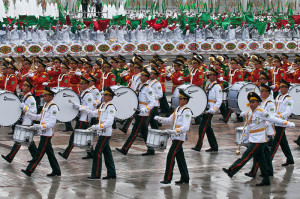 Falling from grace quicker than any proposed peace agreement in the Middle East, Haman stammered to accede to the King’s request to lead Mordechai around the city on horseback. Not only that, but this former hairdresser had the indignity of being reminded of his lower-class past by being made to trim Mordechai’s hair for the occasion.
Falling from grace quicker than any proposed peace agreement in the Middle East, Haman stammered to accede to the King’s request to lead Mordechai around the city on horseback. Not only that, but this former hairdresser had the indignity of being reminded of his lower-class past by being made to trim Mordechai’s hair for the occasion.
Speed is a most important factor. As Haman was finishing up with Mordechai, still traumatised by his public humiliation, he was called in by Esther for a second feast with Ahasuerus. Thus, when Esther revealed her request and pointed the finger at Haman for trying to have her nation killed, Haman was too flustered to allow his usual eloquence to get him out of this sticky situation.
In fact, the angels were employed again here – this time to save Esther from a royal error. Esther, utterly exhausted by now, mistakenly began to point the finger at Ahasuerus when saying the words ‘this evil enemy’, but an angel pushed her finger towards Haman, and the danger was averted.
Haman was now cornered. With the King and Queen looking on, he had nothing to say. He could not argue that the Jewish nation is evil and deserved to be killed anyway, because Esther was there to argue back. And he could not say that had he known that Esther was Jewish he’d never have ordered their death, for Ahasuerus had already heard him decry ‘the wickedness of this nation who deserve to be killed.’ Thus, ‘Haman trembled in fright in front of the King and Queen’ (7:6) – because he had no response to either of them. Now Ahasuerus was not an idiot; paranoid, angry and a megalomaniac yes; but idiot no. He was not about to part with his prize officer just yet. He liked Haman, and was indebted to him for helping him consolidate power. So in reality, there was no chance a ‘snag’ like this would make Ahasuerus do away with his trusted advisor. Lucky the real King was running the show then…
Haman’s Downfall
As Ahasuerus left the feast in a rage (not the first time this had happened), his plan was to cool down by taking a relaxing stroll through the lush royal gardens. But the real King had other plans; cue: the angels again. Entering his b eautiful garden, the King’s mood went from lukewarm to boiling over when he saw a team of workers uprooting his gorgeous grove, favourite foliage and royal roses. Appalled, he demanded to know why they were destroying his garden. ‘Haman commanded us to do so,’ was the answer he received. The King was about to explode. Poor Ahasuerus. He wasn’t to know that this team of gardeners were really angels on a mission! As if that was not enough, when the King strode back inside to consult with Esther, Haman was so distressed that he had fallen on top of her, giving the impression to the on-looking King that Haman was trying to kill her. Three events in quick succession. For Haman it was a case of ‘three strikes and you’re out’. Haman’s time had come.
eautiful garden, the King’s mood went from lukewarm to boiling over when he saw a team of workers uprooting his gorgeous grove, favourite foliage and royal roses. Appalled, he demanded to know why they were destroying his garden. ‘Haman commanded us to do so,’ was the answer he received. The King was about to explode. Poor Ahasuerus. He wasn’t to know that this team of gardeners were really angels on a mission! As if that was not enough, when the King strode back inside to consult with Esther, Haman was so distressed that he had fallen on top of her, giving the impression to the on-looking King that Haman was trying to kill her. Three events in quick succession. For Haman it was a case of ‘three strikes and you’re out’. Haman’s time had come.
Witnessing this scene happened to be a fellow called Charvonah. Despite his French-sounding name, Charvonah turned out to be a military hero. For he initially sided with Haman, and now that the chips were down he switched sides (perhaps his name is more Italian then). Seizing on his opportunity to put in his two pennies, Charvonah sighted the gigantic edifice of the gallows that Haman had built to hang Mordechai (it was tall, after all), and suggested that Haman be hanged on it instead. The King, still irate, agreed at once. Normally the case would have had to go to a judicial panel and this would have meant certain acquittal, for by now Haman had ensured that all his cronies were appointed to the judiciary. But not so long ago at a certain party, a certain young judge had orchestrated a change in the constitution. A certain Mr. Haman Esq. had provided Ahasuerus with emergency powers to be able to decide a case unilaterally if the case affected him. So, with as many as two words, the King bypassed the courts and had Haman hanged (high-fives and hugs all round).
But there was still a major obstacle to hurdle. The letters ordering the mass killing of the Jews had already been delivered to all citizens of the Empire. And it was firmly entrenched in the Babylonian constitution that a letter that had the King’s stamp could not be rescinded under any circumstances. As a result of this, if Ahasuerus would send out a letter saying that ‘Haman made a mistake, that’s not what the King ever meant to say and the previous letters should be destroyed’, it would be met with scepticism and disbelief. The villain might have been ‘put to bed,’ but there was still a mighty pickle to deal with…
Rescinding the Letters – The Empire Strikes Back
I guess it was fortunate that Haman never mentioned ‘the Jews’ expressly in his initial letter! Remember – Haman was waiting for the day to arrive before he revealed that his victims would be the Jews. So Mordechai simply sent out new letters ‘confirming’ that the secret ‘enemy nation’ referred to in Haman’s letters was ‘the enemies of the Jews.’
his initial letter! Remember – Haman was waiting for the day to arrive before he revealed that his victims would be the Jews. So Mordechai simply sent out new letters ‘confirming’ that the secret ‘enemy nation’ referred to in Haman’s letters was ‘the enemies of the Jews.’
Yet there was still a danger. There might still be some people who had not realised that the Jews were killing their enemies legitimately – based on a royal edict. Thus, there was a danger of ‘enemy backlash’ against the Jews for what they had done. Not to fear, the King agreed to allow (and publicise) the Jews to have another day of killing their enemies in Shushan – so everyone would realise that their initial killings were also under the King’s direct orders. So, it came to pass that not only did Haman never see his plan fulfilled, but it was his very letters that allowed the Jews to rid themselves of their enemies. And, as the very end of the Megilla tells us, Mordechai was so loved by all that even after he died no-one thought of exacting revenge from the Jewish People.
Not only that, but as a result of the four aspects that Haman wanted to destroy, we got four compensation packages. He wanted to destroy our physical bodies – we got the Mitzva of a Purim meal; he wanted to destroy our spirit – we got major doses of Simcha – joy; he wanted to take our money – we got our enemies’ money; and he wanted to destroy our souls – we got the Mitzva of reading the Megilla. So we ended the Megilla as a nation safe from our enemies, with extra spiritual and physical wealth too.
Epilogue
Soon after the end of the story recounted in the Megilla, Esther’s son, Daryavesh (who’s father was none other than King Ahasuerus), became King and permitted and expedited the completion of the rebuilding of the Holy Temple in Jerusalem and the Jews joyfully returned to their homeland, bringing an abrupt end to the 70 years spent in exile.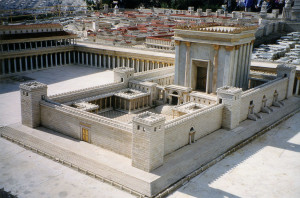
In Conclusion – A Lesson for Life
So there you have it; the real story of the Megilla with all of its revealed and hidden details. So what message can we take away from it?
The end of the Megilla informs us: ‘All of his [King Ahasuerus] mighty and powerful acts, and a full account of the greatness of Mordechai…are recorded in the chronicles of the Kings of Media and Persia’ (10:2) The message being that if you’re interested in history, you can search through the historical archives and annals and you’ll find plenty of information about the events of the Purim story. The Megilla however, is not a historical account or journal, rather, it tells us of a story of Divine Providence. The events recounted within unravel to reveal the Hand of G-d guiding the fate and destiny of the Jewish People.
Before reading the Megilla on Purim, one of the blessings which we recite is ‘Baruch atah Ado-nai, Elo-heinu Melech ha-olam, she-asah nisim la-avosainu, ba-yamim ha-heim ba-ze’man ha-zeh’ – ‘Blessed are you, Hashem our God, King of the universe, who made miracles for our forefathers, in those days in this time’. Just as then, so to now. If we can gain an awareness and show our appreciation for the hidden miracles which guide us through our entire lives, then we will merit to see the revealed miracles as God gathers us in from our current exile, sparing us from the scorn and contempt of the other nations and returning us all to our homeland in jubilant delight. Amen!
Purim Sameach – Happy Purim!!
